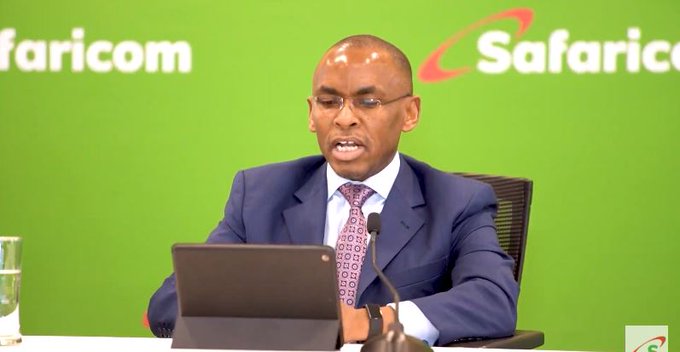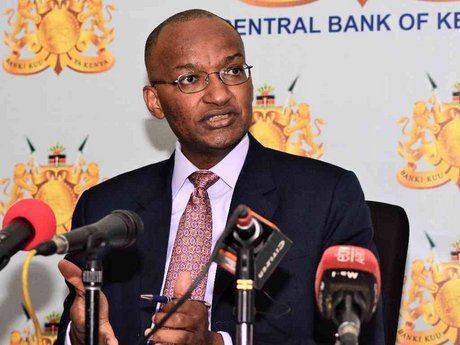
Stockholm Syndrome is a psychological phenomenon where “hostages or abuse victims bond with their captors and abusers.” This bonding can occur over days, weeks, or months of captivity and abuse. Rather than being terrorized by their captors, hostages sympathize with them, developing positive feelings, sharing common goals and causes, and essentially falling in love with their captors.
The story behind the Stockholm Syndrome is a 1973 six-day hostage event in a Swedish bank. By the second day, “the hostages were on a first-name basis with their captors, and they started to fear the police more than their abductors.
” By the end of the hostage crisis, “the convicts and hostages embraced, kissed and shook hands.”
A modern-day version of the Stockholm Syndrome is playing out after over a decade of Safaricom captivity. Kenyans have been held hostage by notorious Telco Safaricom which is colluding with the likes of Communication Authority Of Kenya (CAK), Opus Dei Patrick Njoroge, who doubles up as the CBK governor and Kenyan media oligarchs.

How then could one explain some Kenyans responses under a popular tweet that sought to ignite a conversation regarding the expensive Mpesa charges?
We seriously need to talk about Mpesa charges. Shit is expensive ?
— قلبا شاكرا??? (@Shirley_Sein) June 1, 2021
Under the tweet, it was apparent that Many Safaricom hostages are fighting back but others may have succumbed to Stockholm Syndrome. A keen observer will tell you that Safaricom sometimes shows some kindness by giving their hostages some small goodies and promotions hence some unconsciously view them as benevolent gods and now worship them and their ideals.
Some have come to accept the high Safaricom Mpesa charges with arguments like, “At least Safaricom are efficient and their network is stable”, a clear sign of serious Stockholm syndrome.
Safaricom posted a Ksh.74.7 billion net profit for the year ending March 31, 2020, representing a 19.5 per cent growth in earnings from 2019.
The new record profit by the telco operator was largely attributable to growth from M-Pesa[snip] and data with the respective streams rising by 12.6 per cent and 12.1 per cent to stand at Ksh.84.4 billion and Ksh.40.7 billion respectively.
https://www.ictworks.org/are-you-guilty-of-helping-safaricom-prey-on-rural-women/#.YLtqrTYzbPY
From the dates shared above, it wont be ignorant to conclude that Mpesa has become the major Safaricom money-spinner, behind the success story…lies the details
Early this year, there was a controversy over the Safaricom Home Fibre revamping. We uncovered it under the article “No Love In The Connection’ As Safaricom’s Con Is Exposed Over Revamped Home Fibre ”
A 2019 report by Egyptian investment bank EFG Hermesdubbed dubbed Mobile: Deepening Financial Inclusion But at a High Cost, noted that within East Africa Region, Kenya leads in terms of adult mobile penetration, followed by Tanzania, Rwanda and Uganda.
The report also showed that whereas there is improvement in the penetration of mobile banking across sub-Saharan Africa, transaction costs still remain high.
In Kenya, the cost of sending and withdrawing $5 through Safaricom’s M-Pesa platform is currently fixed at nine per cent of the value of the transaction.
” Borrowing through Safaricom’s overdraft facility Fuliza is more expensive for smaller amounts. The report notes that the effective cost of borrowing $1 on your mobile using M-Shwari and Fuliza accounts in Kenya is 7.5 per cent per month and two per cent per day. However, the annual percentage rate (APR) of borrowing $25 on Fuliza is only 17 per cent, implying that Fuliza is disproportionately expensive for the poor that they claim to be uplifting and working for”
“If the costs of mobile transfers are high, the cost of borrowing on the mobile is usury. This is particularly true of Safaricom’s latest overdraft facility — Fuliza. The effective cost of borrowing $1 from Fuliza is two per cent per day with an APR of 137,641 per cent. However, the cost of borrowing $25 is 0.04 per cent per day with an APR of 17 per cent.
“While we are encouraged by the depth of mobile banking across sub-Saharan African countries, we believe that now is the time to focus on the costs and would encourage both the central banks and ICT regulators to review the cost of this financial inclusion because the current tariff rates are disproportionately expensive for the poor.”
“With regard to Kenya in particular, we strongly believe that it is absolutely inconsistent to regulate bank lending rates and not all borrowing rates. Competition on a level playing field is all that is needed to bring down tariffs and rates across sub-Saharan Africa,” the report says.
It however remains a mystery as to how Safaricom has managed to suppress this conversation but Kenyans must beware of Safaricom planted bots that normalize everything with statements like ” Safaricom is efficient if you don’t like Safaricom quit, Safaricom is better than others”. Why the CBK has not implemented some suggestions in these great reports reveals how Safaricom has managed to bully and control all the sectors of the Kenyan economy, something that may not hold for life.

The editor of this site agrees that Safaricom should be split and if they want to be a bank, let them get a license.
Yes, It is time we have a conversation about high Safaricom Mpesa Charges because we know the Mpesa agents risk the dangers of being attacked by criminals as they make money for the most profitable company, but get very small returns, something that needs another conversation too.

















































